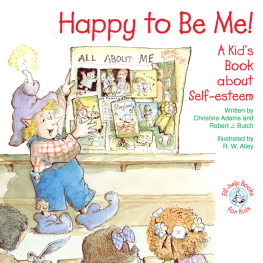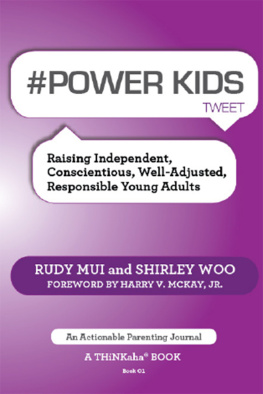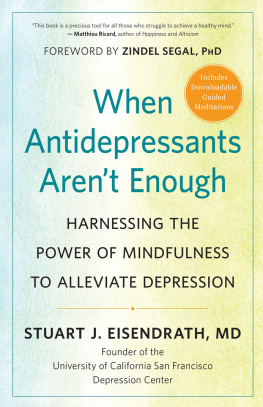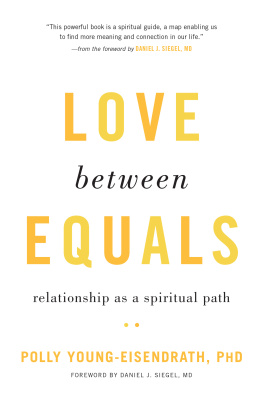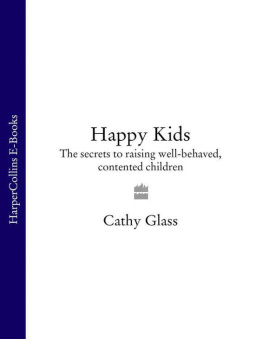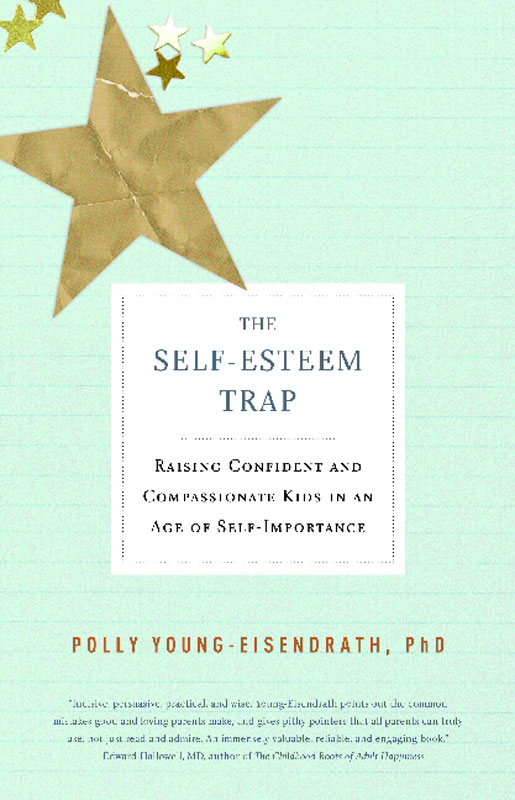Copyright 2008 by Polly Young-Eisendrath, PhD
All rights reserved. Except as permitted under the U.S. Copyright Act of 1976, no part of this publication may be reproduced, distributed, or transmitted in any form or by any means, or stored in a database or retrieval system, without the prior written permission of the publisher.
Little, Brown and Company
Hachette Book Group USA
237 Park Avenue, New York, NY 10017
Visit our Web site at www.HachetteBookGroupUSA.com
First eBook Edition: September 2008
ISBN: 978-0-316-03983-3
ALSO BY POLLY YOUNG-EISENDRATH, PHD
Women and Desire: Beyond Wanting to Be Wanted
The Resilient Spirit: Transforming Suffering into Insight and Renewal
Youre Not What I Expected: Love After the Romance Has Ended
Awakening and Insight: Zen Buddhism and Psychotherapy (coeditor)
Psychology of Mature Spirituality (coeditor)
The Cambridge Companion to Jung (coeditor)
Gender and Desire: Uncursing Pandora
Awakening to Zen: The Teachings of Roshi Philip Kapleau (coeditor)
Jungs Self Psychology: A Constructivist Perspective (coauthor)
Female Authority: Empowering Women Through Psychotherapy (coauthor)
The Book of the Self: Person, Pretext, and Process (coauthor)
Hags and Heroes: A Feminist Approach to Jungian Psychotherapy with Couples
For my children, your children, and their children
I wrote this book because I was at the end of my rope. I had sat hour upon hour in my psychotherapy practice with my heart aching for anxious parents who worried that their teenage and older children lacked good sense and empathy for others, and then more hours with well-educated adults in their twenties and thirties who were already discontent with their desirable lives, and still more hours with young mothers bound to impossible ideals for themselves and their children. One day something in me snapped. Enough!
I had read every book out there on idealizing and indulging our children. For all that I read, though, I could not find a foothold that allowed me or my clients to climb out of the box we were trapped in. It felt as if we had glue on the bottom of our feet. The box is our shared cultural attitude: that everyone is special, a winner, with the potential to be great. Inside the box we believe that everyone has something extraordinary to contribute to life and that being ordinary is an embarrassment. This attitude makes a powerful demand on parents and children and creates excessive self-focus and relentless desires to be or have the best. And although parenting experts have critiqued and studied whats inside this box, we have not been able to step out of it. Stepping out is too painful if we blame ourselves personally for being stuck here in the first place, or if we see no other alternative for happiness and self-confidence.
In the 1970s and 1980s teachers and parents began a campaign to cure low self-esteem in our young. They identify a problem, although they call it by different names. And yet no one has uncovered the roots of the problem or found the cure. Obsessive self-focus, restless dissatisfaction, pressures to be exceptional, unreadiness to take on adult responsibilities, feelings of superiority (or inferiority), and excessive fears of being humiliated are the pervasive symptoms of the problem, recognized by those who are trapped and those of us observing them mental health professionals, educators, parents, and grandparents.
I could use labels like narcissism and entitlement, but I believe they are insulting, especially when used in a judgmental, diagnostic, or accusatory way. Instead of labeling, I want to get us out of this harmful trap and to stop us from blaming ourselves and others. And so I decided to write a book myself. I have written many books and given many public and professional lectures on child and adult development. Writing books helps me understand what I dont understand.
I thought I would be well equipped to write this book. For more than twenty years, I have been a Jungian analyst, a psychologist, and a psychotherapist. Within the broader discipline of psychoanalysis, I am also quite familiar with a specialty called self psychology, which looks at the wounds we accrue from being overly idealized or diminished by our parents. My own research and academic backgrounds are in human development, and I have taught and extensively studied child and adolescent development.
But working on this project has been much harder than I thought it would be. I have encountered acute sensitivities and painful confusions on all sides of the self-esteem trap. First of all, no one wants to be blamed and everyone fears they will be. No parent wants to hear that a cherished child is unhappy because of something the parent has done. Second, parents and grown-up children are in conflict about whether entering adulthood is harder or easier now than in the past. Third, we are only just now coming to understand how long (until the midtwenties) it takes the human brain to mature and thus for young people to master the skills necessary for autonomy for making sound decisions to guide their lives. Well past those early childhood years when you might believe that development is complete, teenagers and young adults are still developing their identities and values. And finally, everyone gets prickly about the topic of the self. While working on this book, I learned to avoid talking about it at dinner parties. Just mentioning it seemed to make people uneasy. Its as though we all fear that well get stuck in the self-esteem trap becoming easily irritated and overly self-concerned. All of this made it clear that I needed to find the right tone in which to address the problem. A lot of squirming and thought and effort has gone into finding that tone, and Im sure I havent always got it right.
So if I sometimes offend you, please forgive me. I want to be honest about what I see as a professional and a human being. I am deeply sympathetic with the suffering on all sides of this problem, especially because I am a parent and grandparent myself. But the stakes are high when we talk about the self.
Soon after I began to write, I realized that I was dealing with a broad cultural issue, not just a psychological problem or a difficulty involving only certain types of parenting or families. In my own experiences as a mother and an educator, I began to sense a shift in our cultural ideals for children sometime in the 1980s, but I wasnt sure how to put my finger on it back then. I wondered if the restlessness, self-obsession, and cynicism that I witnessed in youth and children had to do with the dying out of traditional parenting, the kind that I grew up with, where the lines between the generations were clearly drawn and a hierarchy of power was always in place. Many of my colleagues (experts in clinical psychology) claimed this shift was more the result of attention deficit: youngsters could no longer sit still and pay attention to what was going on because they were conditioned to ever shorter attention spans. Where I saw a lack of manners or respect for elders, others saw a biological disorder or the widespread effects of TV, computer games, popular music, or other aspects of youth culture. I couldnt be sure of anything.
Recently I was happy to find a definitive research study conducted by psychologist Jean M. Twenge that has provided a welcome clarity. Her study conclusively shows that there has been a tectonic cultural shift in what we teach and expect from our children. People whose birthdays fall between the early 1970s and the 2000s adults now in their thirties down to grade-schoolers and toddlers have all been marked by this change. In her conclusions from a massive intergenerational study of 1.3 million Americans, Twenge says, Born after self-focus entered the cultural mainstream, this generation has never known a world that put duty before self. She demonstrates that a central ideology holds these widely different age groups together.





